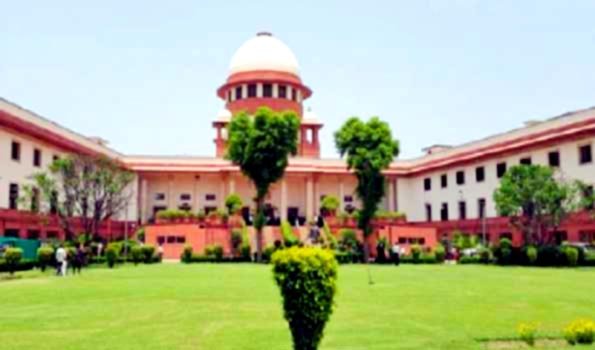New Delhi, Dec 16 (UNI) In a significant development, the Supreme Court has ordered the Enforcement Directorate (ED) to restore assets attached during the insolvency resolution process of Bhushan Power and Steel Ltd (BPSL) to JSW Steel, the successful bidder under the Insolvency and Bankruptcy Code (IBC).
This comes after the ED decided not to pursue its appeal challenging JSW Steel’s takeover of Bhushan Power.
A bench, comprising Justice Bela M Trivedi and Justice Satish Chandra Sharma, passed the order on December 11, following the ED’s submission that it would not contest the applicability of Section 32A of the IBC in this specific case.
Section 32A provides immunity to corporate debtors and their assets from prosecution or attachment once a resolution plan has been approved under the IBC.
The ED had attached assets worth ₹4,025 crore of Bhushan Power under Section 5 of the Prevention of Money Laundering Act (PMLA), alleging that the company’s former promoters had defrauded banks and diverted funds.
However, Solicitor General Tushar Mehta, appearing for the ED, informed the Court on December 2 that the agency no longer sought to contest the application of Section 32A in the case.
On December 11, the ED filed an affidavit agreeing to return the attached properties to JSW Steel, while retaining the right to continue investigations against the former promoters of Bhushan Power.
This decision marked a departure from the ED’s earlier position that Section 32A should not apply retrospectively to attachments made before its introduction in December 2019.
Based on the ED’s revised stance, the Apex Court directed the restitution of Bhushan Power’s attached properties to JSW Steel.
The order stated, “The Appellant-ED is directed to hand over, and the Respondent successful Resolution Applicant JSW is directed to take over, the control of the properties of Corporate Debtor-Bhushan Power and Steel Ltd., provisionally attached vide the order passed on October 10, 2019, by the E.D., immediately because of Section 8(8) of the PMLA read with Rule 3A of the said Rules.”
The Court clarified that this decision was specific to the case at hand and would not serve as a precedent for other matters.
Additionally, it refrained from addressing broader questions concerning the interpretation of Section 32A of the IBC or the powers of the ED under the PMLA.
Bhushan Power entered into insolvency proceedings under the IBC after defaulting on debts, with JSW Steel emerging as the successful resolution applicant.
The Committee of Creditors (CoC) approved JSW Steel’s resolution plan in September 2019, and the National Company Law Tribunal (NCLT) granted final approval.
However, the ED opposed the resolution plan, arguing that its attachment rights under the PMLA remained unaffected.
In February 2020, the National Company Law Appellate Tribunal (NCLAT) upheld the NCLT’s decision, vacating the ED’s attachment of Bhushan Power’s properties.
The ED then appealed to the Supreme Court, contending that Section 32A of the IBC did not apply to this case, as the attachment predated the provision’s introduction.
During the ongoing litigation, the ED proposed returning the attached properties to JSW Steel as restitution, without prejudice to its investigation against Bhushan Power’s former promoters.
The matter saw prominent legal teams representing all parties:
JSW Steel Ltd was represented by Senior Advocates Neeraj Kishan Kaul and Gopal Jain, along with Karanjawala & Co.
The Committee of Creditors was represented by Senior Advocates Dr. Abhishek Manu Singhvi and Sanjiv Sen, supported by Cyril Amarchand Mangaldas.
Enforcement Directorate was represented by Solicitor General Tushar Mehta and advocate Zoheb Hossain.
The Apex Court emphasized that its decision does not preclude the ED from investigating the promoters of Bhushan Power or pursuing similar cases in the future.
Meanwhile, the ED’s appeal challenging a Bombay High Court ruling on the NCLT’s jurisdiction to lift PMLA attachments remains pending before a bench led by Justice A.S. Oka.
The Supreme Court has stayed the High Court’s decision in that matter, signalling that the larger legal debate over the IBC-PMLA interplay is far from over.









